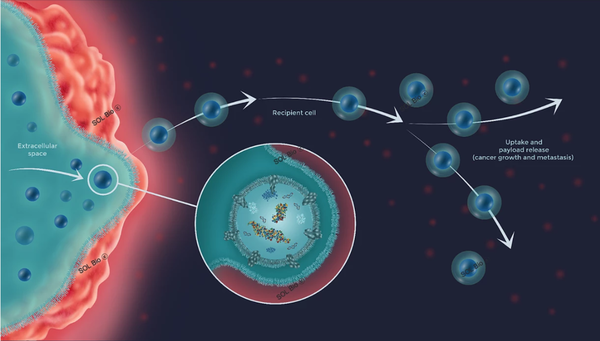Researchers at a Korean bio venture have developed a low-cost, high-efficiency “exosome diagnostic technology,” which can diagnose stage 1 and 2 prostate cancer with very high accuracy using five drops of blood.

SOL Bio said Wednesday that the in-vitro diagnostic startup has developed the “cancer-specific exosome-separating diagnostic technology” for the first time in the world. The new technology separates exosomes secreted by cancer cells in the blood, analyzes them through biomarker, and diagnose prostate cancer with 95 percent accuracy.
If found early, prostate cancer has a five-year survival rate, but the survival rate plunges to 29 percent if found in the metastatic stage. According to the company researchers, an early examination is needed, but the disease has few early symptoms and could transfer to bones or cause complications.
The existing prostate cancer diagnostics method of pre-frontal specific antigen (PSA) has a 50 percent accuracy. However, its average diagnosis accuracy of primary cancer of molecular diagnostic kit drops to 43 percent or lower.
SOL Bio’s technology uses its reversible, immune-isolation system, “Neutra Release™,” to separate cancer-related exosomes from five drops of the patient’s blood (0.2 ml), and analyzes prostate cancer cells at above 90 percent accuracy in 30 minutes using “ExoMAIN” surface marker profiling method, and more than 95 percent accuracy in early its stages.
Professor Kang Sung-koo from the Department of Urology at Korea University Anam Hospital has conducted joint research.
The research team expects the technology to be a turning point in the early diagnosis of severe diseases, as it can apply to various other diseases, including the five most common cancers.
“The development of this technology proves the efficiency of exosome isolation-based diagnostic methods in detecting specific components only observed in cancer exosomes,” said Professor Park Kyung-hwa of Korea University Anam Hospital, who also participated in the research. “We expect that through additional verification, this technology will complement existing PSA methods and increase the accuracy with an accurate diagnosis of prostate cancer in stages 1 and 2.”
SOL Bio CEO Baek Se-hwan, also a professor emeritus at Korea University, also said, “If this technology develops into a new test method, it will significantly benefit patients by reducing side effects, medical costs, and omitting embarrassing situations from diagnostic tests as it requires active monitoring in PSA statistics and CT imaging.”
SOL Bio has about 20 biosensor-related patents, and CEO Baek is one of the world-renowned experts in diagnostic technology who has been specializing in this field for 35 years. Baek also founded and served as the first chairman of the Korean BioChip Society.

